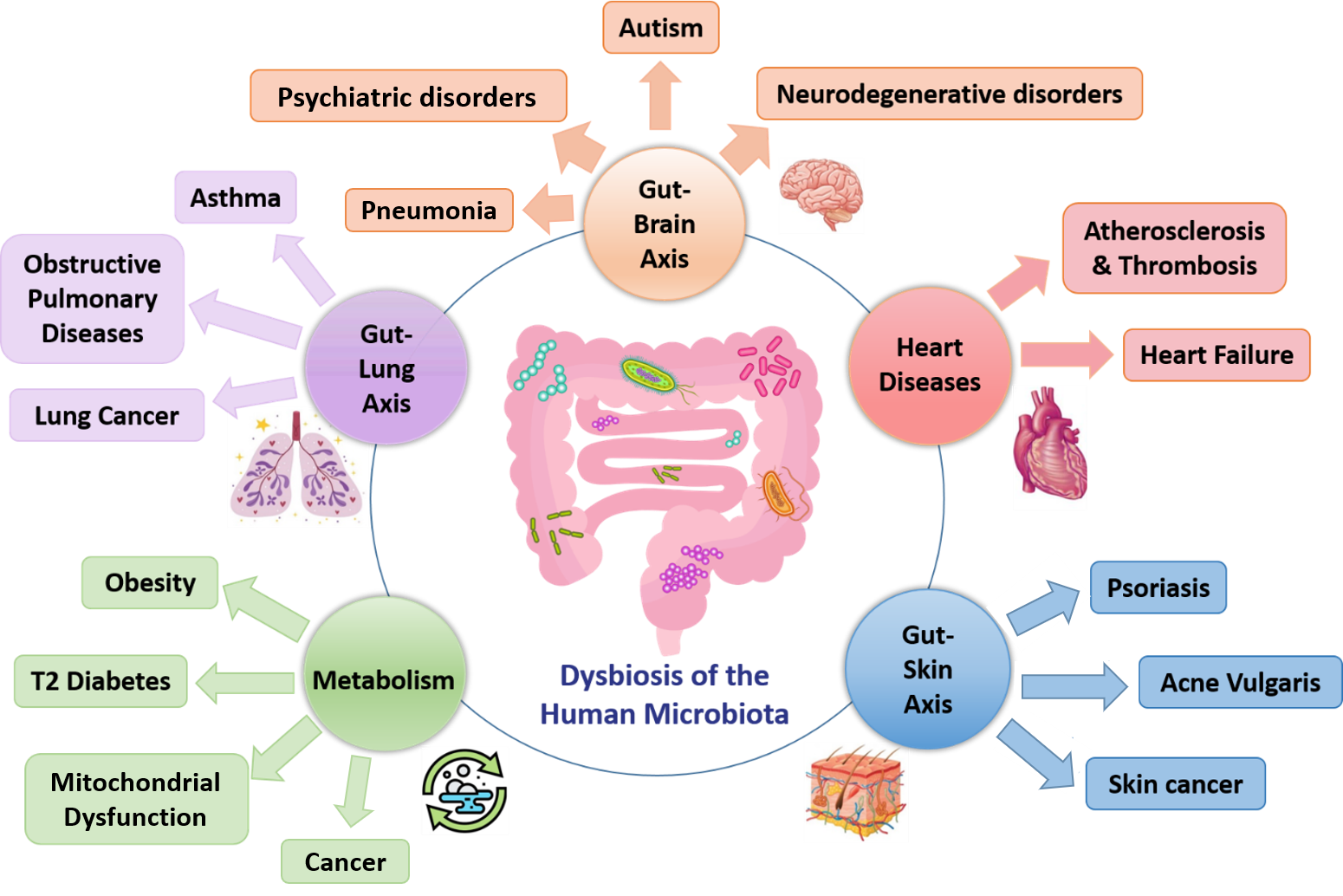
Targeting Microbiota Dysbiosis: A Huge Challenge

News Release, Skin Aging & Challenges – March 9, 2022
Members of the International Society of Microbiota, headed by Prof. Marvin Edeas (Institut Cochin- Unviersité de Paris), joined forces to clarify the strategic role of microbiota.
In this review, published in the Journal of Translational Medicine, the authors covered the key role and implication of microbiota in human health, going from human microbiome and microbiota dysbiosis in human diseases, to the therapeutic strategies in the gut microbiota manipulation.
In fact, gut microbiota is tightly related to human evolution and host gastrointestinal microenvironment. Therefore, it is , which makes it easily altered by many endogen and external factors, like the built environment microbiome.
Host organs and gut microbiota communicate in a multidirectional way, maintaining a global homeostasis. Among these flora-organ interactions: gut-lung, gut-brain, gut-skin axes, and many others. Any microbial dysbiosis could lead to an increased risk of pathogenesis of many diseases.
The authors highlighted that skin pathologies are not only due to skin microbiota dysbiosis, but they are also accompanied with alterations within the gut microbiome. In fact, both the intestinal tract and skin are densely vascularized and extensively inhabited by a wide variety of microorganisms that play many roles in maintaining the homeostasis. Different studies demonstrated a bidirectional cross-talk between skin and gut microbiota, referred to as the gut-skin-microbiota axis. This intimate connection, if altered, was shown to be associated with many skin diseases such as psoriasis, atopic dermatitis and other disorders including skin cancer.
In the therapeutic context, targeting specific microbial components or metabolites could provide a tool in the treatment of many diseases. Beyond having the pre- or probiotics, which are the traditional and first line choice of microbial therapies, other strategies are being clinically studied such as the FMT, metabolites, phages and miRNAs.
Despite all the existing limitations and the discrepancies, targeting the microbiota opens a new therapeutic window for many serious metabolic and neurological disorders, and needs to receive better attention in research due to the hope it provides to many patients.
The medicine of tomorrow will come through microbiota.
Prof. Marvin Edeas (Institut Cochin, INSERM – Université de Paris) stated “I confirm again that the future of medicine is strongly related to the quality of our microbiota. Targeting microbiota dysbiosis will be a huge challenge. My main challenge today is to target mitochondria and microbiota together.”
Did you like the news ? Please share it with your circle.
